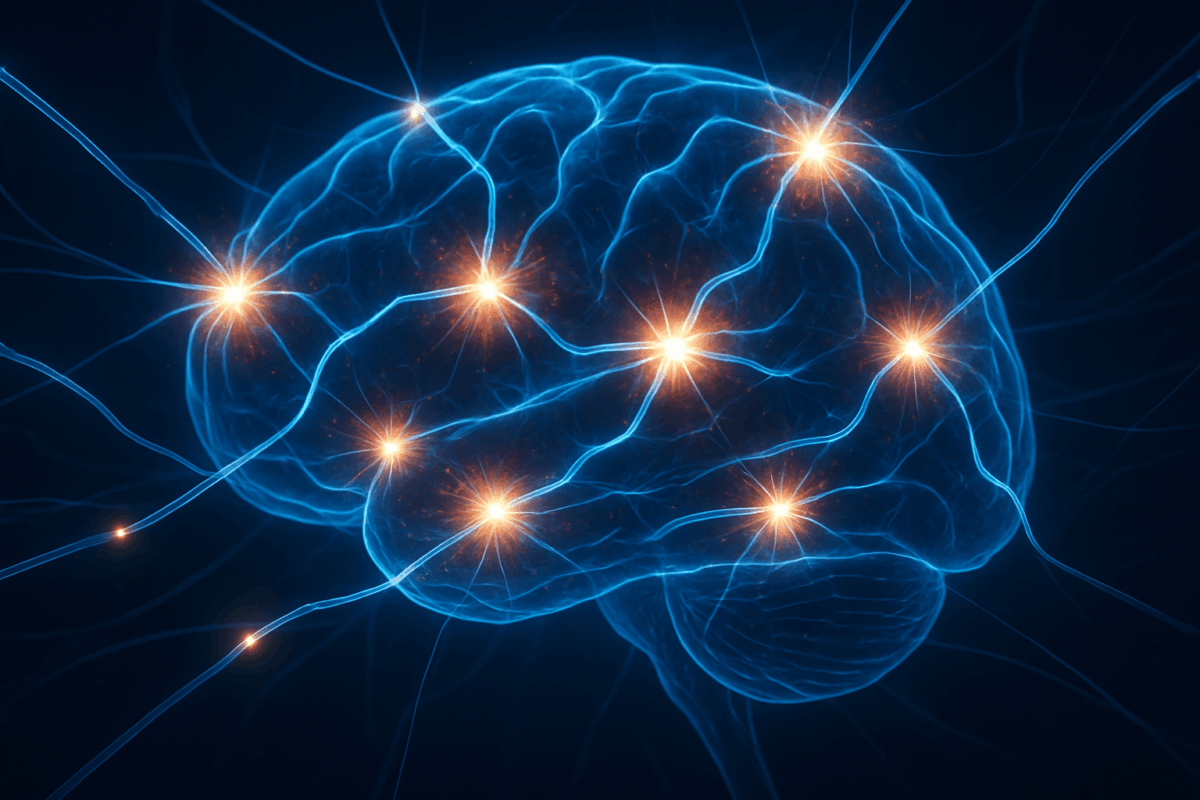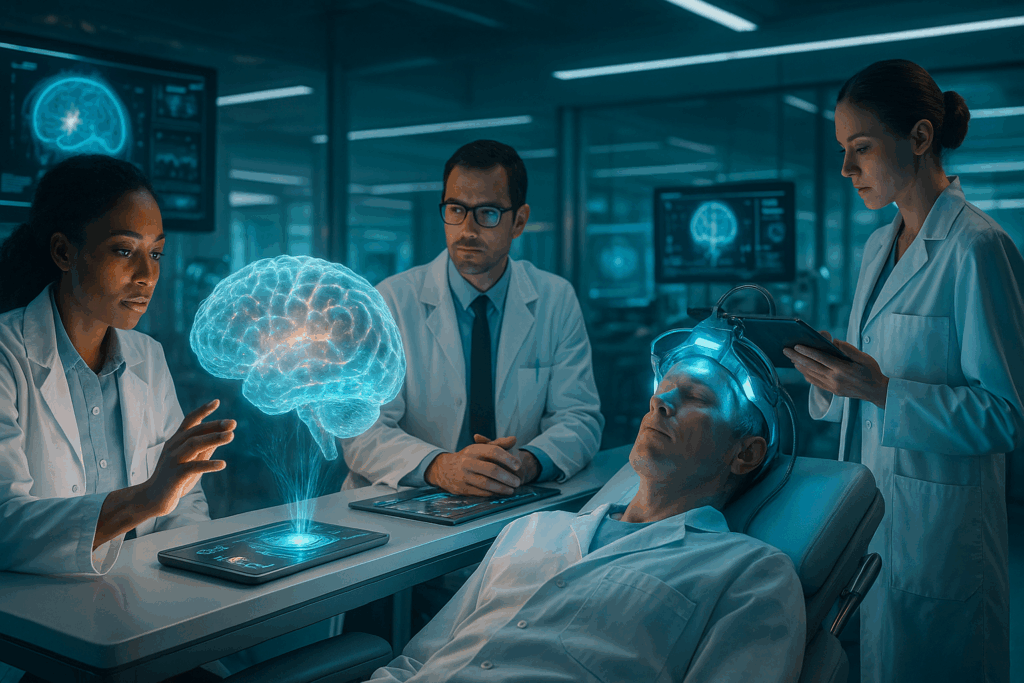Introduction: Navigating the Complex Landscape of Amnesia Treatment
Amnesia remains one of the most intriguing and challenging neurological conditions, profoundly affecting memory, identity, and quality of life. For those grappling with memory loss, the journey toward recovery is often layered with complexity, hope, and scientific innovation. Understanding the role of amnesia medication, including amnesia pills, tablets, and other pharmacological treatments, is essential for those seeking evidence-based paths to cognitive rehabilitation. In this exploration, we will dive deeply into the nature of amnesia, the science behind pharmaceutical interventions, and how emerging therapies aim to support memory recovery with greater precision and efficacy.
You may also like: Best Herb for ADHD Support: How Natural Remedies and Herbs for ADHD Women May Help Boost Focus and Calm
The purpose of this article is not only to illuminate the mechanisms and effectiveness of amnesia drugs but also to provide a grounded, medically accurate resource for those navigating the emotional and clinical realities of memory loss. Through a careful, expert-guided discussion, we aim to enhance understanding while emphasizing the principles of safety, trustworthiness, and informed choice.

What Is Amnesia? Understanding Memory Loss Beyond the Stereotypes
Amnesia is far more complex than the portrayal often seen in films and popular media. Medically speaking, amnesia refers to a partial or complete loss of memory, typically resulting from brain injury, disease, psychological trauma, or certain medications. There are several types of amnesia, each with its unique features. Anterograde amnesia, for example, inhibits the ability to form new memories, while retrograde amnesia affects the recollection of past experiences.
Unlike general forgetfulness, amnesia typically stems from physical or chemical changes within the brain, often affecting areas such as the hippocampus, which plays a vital role in forming and retrieving memories. Understanding the underlying cause is crucial when considering treatment options, including the use of amnesia medication or amnesia pills to assist in recovery. Different forms of amnesia require nuanced therapeutic approaches, ranging from cognitive therapy to pharmacological interventions designed to stimulate neural regeneration and memory restoration.

How Amnesia Medication Works: Targeting the Brain’s Memory Mechanisms
The development of amnesia medication reflects decades of research into how memories are formed, stored, and retrieved. Most amnesia drugs aim to enhance neuroplasticity—the brain’s ability to adapt and reorganize itself—by influencing neurotransmitter systems or by promoting the repair of damaged neural pathways. Cholinesterase inhibitors, for example, are a class of drugs commonly used in Alzheimer’s disease and have been explored for their potential in treating certain types of amnesia by enhancing acetylcholine levels in the brain.
Another promising avenue includes drugs that target the glutamatergic system, essential for synaptic plasticity and memory formation. In some cases, medications that modulate serotonin and dopamine levels can also assist in memory recovery by improving mood and cognitive function, thereby supporting the overall healing environment within the brain. When integrated thoughtfully into a broader treatment plan, amnesia pills and tablets can play a pivotal role in the multifaceted process of cognitive rehabilitation.
Common Types of Amnesia Medicine and Their Applications
In clinical practice, the selection of amnesia medicine is highly individualized, tailored to the patient’s specific type and cause of memory loss. Some of the most commonly explored pharmacological options include:
- Donepezil: Originally developed for Alzheimer’s disease, donepezil has been studied for its potential to improve memory function in patients with traumatic brain injury and amnesia. By increasing acetylcholine levels, it may enhance communication between neurons, facilitating better memory recall.
- Memantine: As an NMDA receptor antagonist, memantine helps regulate glutamate activity, which is crucial for learning and memory. It has shown promise in supporting cognitive recovery in certain amnesia cases.
- Modafinil: Known for promoting wakefulness, modafinil has secondary cognitive benefits that include improved memory, attention, and executive function, making it a candidate for off-label use in amnesia treatment.
While amnesia tablets can offer hope, their use must be carefully managed to avoid side effects and to ensure compatibility with other aspects of the patient’s health profile. Therefore, the guidance of a neurologist or cognitive specialist is essential when considering pharmacological interventions.

The Role of Amnesia Pills in Comprehensive Cognitive Rehabilitation
Although amnesia pills can provide critical support, they are rarely used in isolation. Effective treatment for amnesia almost always involves a multimodal approach. Pharmacological therapy is typically combined with cognitive rehabilitation techniques such as memory exercises, occupational therapy, and psychotherapy. The goal is to create a synergistic effect, where medication enhances the brain’s receptiveness to therapy, and therapeutic interventions reinforce the gains made possible through pharmaceutical support.
Research indicates that patients who receive integrated care that includes amnesia medication alongside cognitive therapy tend to show more substantial improvements in memory function compared to those who rely on one method alone. Therefore, anyone considering amnesia drug therapies should view them as part of a broader, holistic treatment framework designed to address both the biological and psychological dimensions of memory loss.
Emerging Research: New Frontiers in Amnesia Treatment
The future of amnesia treatment is poised for groundbreaking advancements, with several emerging therapies on the horizon. Stem cell therapy, for instance, holds potential for regenerating damaged brain tissue, while neurotrophic factors like BDNF (brain-derived neurotrophic factor) are being studied for their ability to stimulate synaptic growth and plasticity.
Novel compounds such as ampakines, which modulate glutamate receptors to enhance synaptic transmission, are also under investigation. These agents could represent a new class of amnesia drugs that work more precisely and effectively than current options. Meanwhile, research into gene therapy and personalized medicine offers the promise of highly tailored treatments that match an individual’s unique genetic and neurochemical profile, minimizing side effects while maximizing cognitive recovery.
As new amnesia pills and tablets progress through clinical trials, it remains essential for patients and caregivers to rely on evidence-based information and to approach emerging treatments with a balance of optimism and caution. Science continues to evolve, but rigorous validation through clinical research remains the cornerstone of safe and effective care.

The Importance of Accurate Diagnosis Before Starting Amnesia Medication
One of the most critical steps before beginning any amnesia medicine is obtaining an accurate and comprehensive diagnosis. Amnesia can result from a variety of causes—including traumatic brain injury, stroke, infection, or psychiatric conditions—and each demands a different treatment strategy. Misdiagnosis can lead to the inappropriate use of medications, potentially exacerbating the condition or causing unnecessary side effects.
Diagnostic evaluations typically include a thorough neurological exam, cognitive testing, neuroimaging studies like MRI or CT scans, and sometimes blood work to rule out metabolic or infectious causes. With a detailed understanding of the underlying pathology, clinicians can recommend the most appropriate amnesia pills or tablets, optimizing the chances for successful recovery while safeguarding against undue harm.
Potential Risks and Side Effects of Amnesia Pills and Tablets
Like all medications, amnesia pills and tablets come with potential side effects that must be weighed against their benefits. Common side effects may include gastrointestinal disturbances, dizziness, insomnia, or mood changes. Some amnesia drugs that alter neurotransmitter levels can, in rare cases, trigger psychiatric symptoms such as agitation or hallucinations.
Additionally, drug interactions must be considered carefully, particularly in patients who are already taking medications for other health conditions. It is essential that individuals taking amnesia medication are monitored regularly by their healthcare providers to adjust dosages as needed and to identify any adverse effects early on. Open communication between patient and provider is key to maintaining safety while maximizing therapeutic outcomes.
Natural and Alternative Approaches to Supporting Memory Recovery
While amnesia drugs form a cornerstone of conventional treatment, many patients seek complementary strategies to support memory recovery. Nutritional interventions, such as diets rich in omega-3 fatty acids, antioxidants, and B vitamins, may promote brain health and cognitive resilience. Mindfulness practices, meditation, and stress reduction techniques have also been shown to enhance neuroplasticity, providing additional support alongside pharmacological therapy.
Furthermore, nootropic supplements—sometimes referred to as “smart drugs”—are being explored for their potential role in cognitive enhancement. However, it is vital to approach such alternatives with caution and to consult with healthcare professionals before integrating any new supplements, especially when amnesia medication is already part of the treatment plan.
Patient Stories: Real-World Experiences with Amnesia Medication
Understanding the real-world impact of amnesia pills and tablets can be profoundly enlightening. Case studies reveal that while some individuals experience dramatic improvements in memory function, others may see only modest gains. Factors influencing outcomes include the severity of the brain injury, the timing of treatment initiation, and the patient’s overall health and commitment to cognitive rehabilitation.
For example, a patient recovering from a mild traumatic brain injury might find that a carefully chosen amnesia drug, combined with rigorous cognitive therapy, leads to a nearly complete restoration of memory. Conversely, someone with extensive hippocampal damage may experience more limited progress, requiring ongoing support and adaptation. These stories highlight the deeply personal nature of memory recovery and underscore the importance of individualized care.

Frequently Asked Questions: Understanding Amnesia Medication, Pills, Tablets, and Treatments
1. How long does it typically take for amnesia medication to show effects?
Amnesia medication often requires time to begin exhibiting noticeable effects, largely depending on the cause and severity of the memory impairment. In cases involving traumatic brain injury, patients may start seeing small improvements in a few weeks, though full cognitive rehabilitation typically takes several months. The effectiveness of an amnesia drug also hinges on how well it is integrated with cognitive therapies and lifestyle adjustments. Amnesia pills and amnesia tablets are designed to enhance brain plasticity, but they cannot produce immediate restoration of lost memories. It is crucial to have realistic expectations and to recognize that incremental progress is often a strong indicator of positive drug response.
2. Can amnesia pills help with both short-term and long-term memory loss?
The capacity of amnesia pills to assist with short-term or long-term memory loss largely depends on the type of memory affected and the underlying neurological damage. Some amnesia medicine is specifically formulated to target short-term memory pathways, enhancing neurotransmitter activity to aid new memory formation. Other types of amnesia drug formulations aim to strengthen long-term synaptic connections, potentially improving access to stored memories. In clinical practice, combining both types of amnesia tablets with cognitive therapy often yields the best outcomes. It is important to note that the effectiveness may vary from person to person, and treatment plans should be tailored accordingly.
3. Are there specific age groups that respond better to amnesia medication?
Age can influence how well a patient responds to amnesia medication, but it is not the sole determining factor. Younger brains tend to have greater neuroplasticity, which means they may respond more rapidly to amnesia drugs that aim to rebuild neural pathways. However, older adults are not excluded from benefiting; in fact, many studies have shown that consistent use of amnesia pills, along with rehabilitative exercises, can lead to significant improvements in seniors. Personalized medical assessments are crucial to determining the right type and dosage of amnesia tablets for each age group. Early intervention often correlates with better outcomes, regardless of age.
4. Can amnesia medicine interact with other cognitive or psychiatric medications?
Yes, amnesia medicine can interact with other cognitive enhancers or psychiatric medications, sometimes amplifying or diminishing their effects. For example, using amnesia pills alongside antidepressants or anti-anxiety medications can alter neurotransmitter balances in ways that might necessitate careful dose adjustments. Some amnesia drug formulations, particularly those targeting acetylcholine pathways, can interact with common treatments for mood disorders. Always disclose all current medications to your healthcare provider when considering amnesia tablets, as interactions could either compromise efficacy or introduce unwanted side effects. A thorough medication review is a fundamental step to ensure safe and effective treatment planning.
5. Is it possible to build a tolerance to amnesia drugs over time?
Tolerance development to amnesia medication is a potential concern, particularly with long-term use. Some patients may find that the benefits of amnesia pills or amnesia tablets diminish after prolonged exposure, necessitating dose adjustments or drug cycling. Researchers are actively studying how different amnesia drug compounds influence receptor sensitivity and neuroadaptive changes over time. In some cases, rotating or supplementing therapies with non-pharmacological cognitive training can help maintain therapeutic effectiveness. Open communication with medical providers ensures that any signs of tolerance are addressed promptly with an updated treatment strategy.
6. Are there any promising new forms of amnesia medication currently in research?
The field of neuropharmacology is rapidly expanding, and several new forms of amnesia medication are currently under investigation. Scientists are exploring the use of gene therapy to promote neural regeneration, potentially offering a revolutionary approach beyond conventional amnesia pills. Additionally, compounds that stimulate endogenous neurotrophic factors are being tested for their ability to naturally repair memory circuits without the side effects associated with traditional amnesia tablets. Another innovative direction includes the development of smart drugs that adapt their activity based on real-time brain signals. While these treatments remain experimental, they offer a glimpse into the future of personalized amnesia drug therapy.
7. How do lifestyle factors influence the effectiveness of amnesia medicine?
Lifestyle factors such as diet, exercise, sleep quality, and mental stimulation play a significant role in how well amnesia medicine performs. Patients who combine their use of amnesia pills with brain-healthy diets rich in omega-3 fatty acids, antioxidants, and B vitamins often experience better cognitive outcomes. Regular physical activity improves cerebral blood flow, enhancing the delivery of amnesia drug compounds to target brain regions. Cognitive activities like puzzles, language learning, and mindfulness meditation can further amplify the benefits of amnesia tablets by encouraging neuroplasticity. In essence, medicine works best when it is part of a comprehensive lifestyle strategy rather than a standalone intervention.
8. What should patients know about stopping amnesia medication after memory improves?
Discontinuing amnesia medication should always be done under medical supervision, even if substantial memory improvement has occurred. Abruptly stopping amnesia pills or amnesia tablets could result in withdrawal symptoms or cognitive regression, particularly if brain systems have come to rely on the pharmacological support. Gradual tapering allows the brain to readjust and assess whether it can maintain improvements independently of the amnesia drug. Clinicians often recommend continued monitoring and support strategies such as cognitive therapy or supplementation to help sustain gains after medication is phased out. A structured discontinuation plan ensures that progress is preserved without risking relapse.
9. How do psychological factors influence the success of amnesia drug therapies?
Psychological factors such as motivation, emotional resilience, and a positive outlook can significantly influence the success of amnesia drug therapies. Patients who are engaged and proactive in their treatment—for instance, by participating actively in cognitive training programs—often derive more benefits from their use of amnesia medication. Emotional stress and untreated depression, conversely, can impair neuroplasticity and blunt the positive effects of amnesia pills. Mind-body interventions such as counseling, stress management, and mindfulness practices are increasingly integrated alongside amnesia tablets to create a supportive psychological environment for healing. Addressing mental health holistically enhances the overall potential for recovery.
10. How can caregivers best support patients taking amnesia pills and tablets?
Caregivers play a crucial role in the success of treatment involving amnesia pills and tablets. Providing structured routines, gentle reminders, and emotional encouragement can significantly enhance a patient’s response to amnesia medication. Caregivers should also stay informed about potential side effects and assist in monitoring any changes in behavior or memory function linked to the amnesia drug regimen. Facilitating access to cognitive exercises and creating an enriching environment full of mental stimulation further supports the action of amnesia tablets. Ultimately, caregiver involvement fosters a holistic approach where medical, emotional, and environmental factors align to support memory recovery.

Conclusion: Navigating the Journey of Memory Recovery with Informed Confidence
Navigating the journey of memory recovery after amnesia is an endeavor that demands resilience, informed decision-making, and trust in scientific progress. Understanding the role of amnesia medication, including the nuanced applications of amnesia pills and tablets, empowers patients and caregivers to make choices grounded in evidence and compassion.
While no treatment offers a guaranteed cure, the thoughtful integration of amnesia drugs into a broader therapeutic strategy can significantly enhance quality of life and cognitive function. As research continues to unfold new possibilities, maintaining a spirit of cautious optimism and a commitment to evidence-based care will serve as essential guides. In the evolving landscape of neurological health, memory recovery is increasingly within reach—and with each advancement, hope grows stronger for those impacted by amnesia.
Was this article helpful? Don’t let it stop with you. Share it right now with someone who needs to see it—whether it’s a friend, a colleague, or your whole network. And if staying ahead on this topic matters to you, subscribe to this publication for the most up-to-date information. You’ll get the latest insights delivered straight to you—no searching, no missing out.


